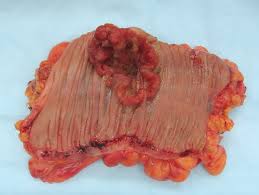neoplasm
英 [ˈniː.ə.plæz.əm]
美 [ˈniː.əˌplæz.əm]
- n. [医] 赘生物,瘤;[医] 新生物
星级词汇:

记忆方法
将“neo”和“plasm”分别记忆。首先,“neo”意味着“新”或“新的”,而“plasm”与“plasma”(血浆)有关。将这两个部分结合,可以想象成一种“新的血浆”或者“新的组织”,这就是“neoplasm”即“新生物”或“肿瘤”的直观记忆方法。
以上内容由AI生成, 仅供参考和借鉴
英语词源
- neoplasm (n.)
- 1864, coined in German by Karl Friedrich Burdach (1776-1847) from neo- + Greek plasma "formation" (see -plasm). Related: Neoplastic.
权威例句
- 1. There is a neoplasm originating in his leg's epidermis.
- 他的腿上有个生长在表皮上的肿瘤。
- 2. The neoplasm reduces the flexibility of the wall and in this manner produces the initial symptoms.
- 癌肿可使管壁弹性减弱,这样就产生了初期症状.
- 3. Loosely speaking, a neoplasm is referred to as a " tumor ", which simply means a swelling.
- 不严格地说, 新生物就是 “ 肿瘤 ”, 后者简单地含有肿胀的意思.
- 4. Angiogenesis is crucial in the occurrence, development and prognosis of neoplasm.
- 血管生成对恶性肿瘤的发生 、 发展和预后至关重要.
- 5. Note that nucleoli are numerous and large in this neoplasm.
- 在肿瘤细胞中核多且大.
